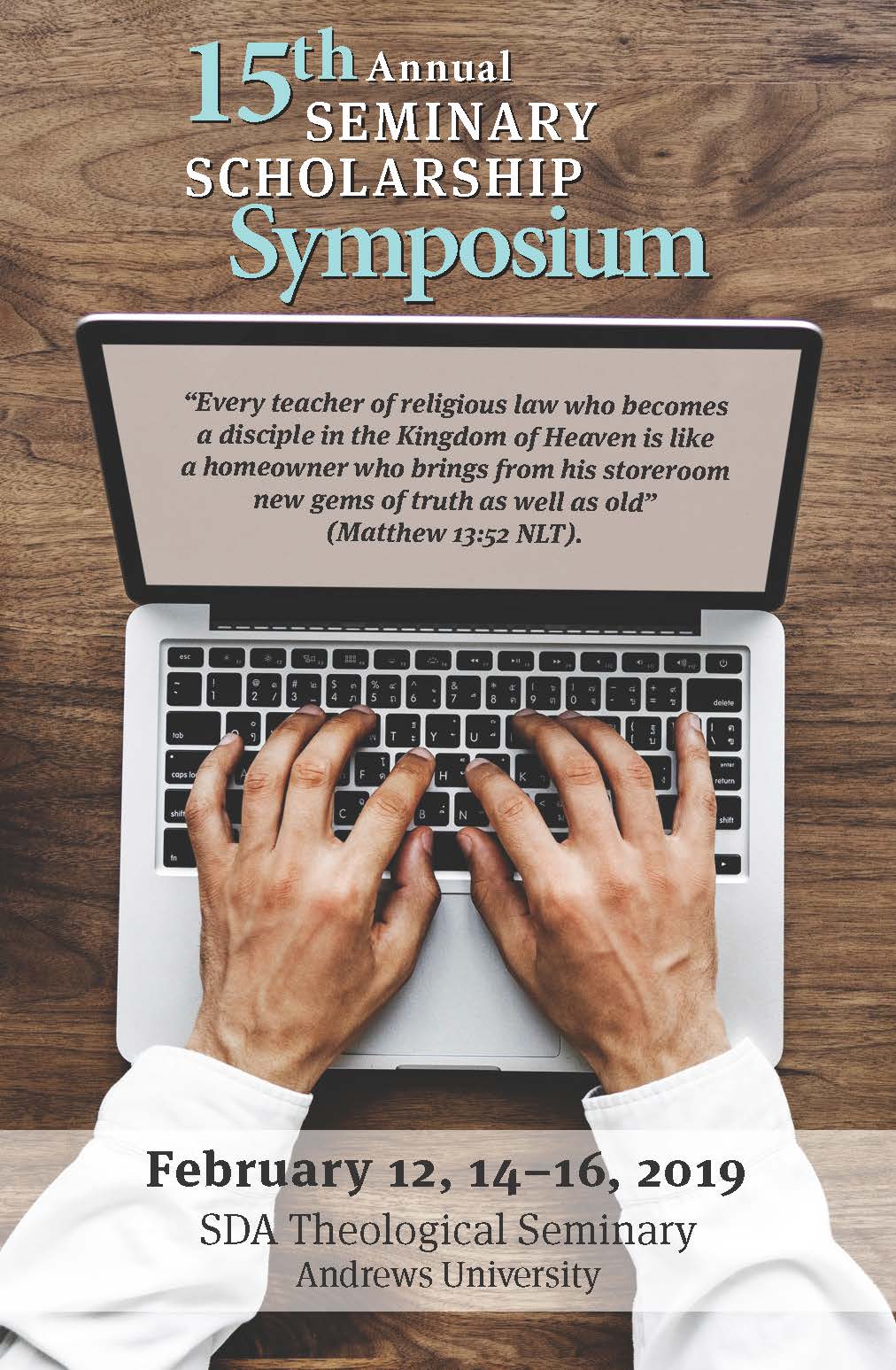Joseph, Judah and Jesus: Revisiting Genesis 37–50
Location
Seminary Room N310
Start Date
15-2-2019 9:20 AM
End Date
15-2-2019 9:40 AM
Description
Twice on Resurrection Sunday, Jesus stated a foundational hermeneutical principle: “ ‘... believe in all that the prophets have spoken! Ought not the Christ to have suffered these things and to enter into His glory?’ ” And beginning at Moses and all the Prophets, He expounded to them in all the Scriptures the things concerning Himself” (Luke 24:25-27); also— “Then He said to them, [in Jerusalem] ‘These are the words which I spoke to you while I was still with you, that all things must be fulfilled which were written in the Law of Moses and the Prophets and the Psalms concerning Me.’ And He opened their understanding, that they might comprehend the Scriptures” (Luke 24:44-45). The texts He was pointing to include narratives—of which at least 40% of the Old Testament is comprised. Multiple scholars and commentators have noted that in the first book of Moses, the final thirteen of the fifty chapters highlight details in Joseph’s life that prefigure the Messiah (upwards of twenty typological parallels have been recognized). Interspersed within the Joseph narratives are also narratives of Joseph’s half-brother Judah. Many critics have asserted that these chapters are “misplaced” or carelessly redacted into the Joseph cycle. Yet the twice-repeated remarks of Jesus on Resurrection Sunday suggest that modern criticism of the “editing” of Genesis narratives from “redactors” unschooled in more sophisticated modern standards is flawed. Others who criticize “reading Jesus back into the Old Testament” are also mistaken if Jesus’ directives are taken seriously. He insists that the Old Testament is about Him. “Beginning at Moses,” the fifty chapters of Genesis cover a period of at least 2,500 years, surveying a vast amount of time. However, “narrative time” then slows down considerably with the last thirteen chapters focusing on Joseph and Judah. “Narrative time” slowing down this dramatically is in itself is a vital narrative marker. This paper seeks, through a close reading of Genesis 37–50, to counteract the critical suggestions that the Judah narratives within the Joseph sequence are carelessly placed. It will be argued that the last thirteen chapters of Genesis highlight Joseph along with Judah—both of whose lives point forward to Jesus, 25 albeit in different ways. The life of Christ not only mirrors Joseph’s noble life, but He is also the “Lion of the Tribe of Judah.”
Joseph, Judah and Jesus: Revisiting Genesis 37–50
Seminary Room N310
Twice on Resurrection Sunday, Jesus stated a foundational hermeneutical principle: “ ‘... believe in all that the prophets have spoken! Ought not the Christ to have suffered these things and to enter into His glory?’ ” And beginning at Moses and all the Prophets, He expounded to them in all the Scriptures the things concerning Himself” (Luke 24:25-27); also— “Then He said to them, [in Jerusalem] ‘These are the words which I spoke to you while I was still with you, that all things must be fulfilled which were written in the Law of Moses and the Prophets and the Psalms concerning Me.’ And He opened their understanding, that they might comprehend the Scriptures” (Luke 24:44-45). The texts He was pointing to include narratives—of which at least 40% of the Old Testament is comprised. Multiple scholars and commentators have noted that in the first book of Moses, the final thirteen of the fifty chapters highlight details in Joseph’s life that prefigure the Messiah (upwards of twenty typological parallels have been recognized). Interspersed within the Joseph narratives are also narratives of Joseph’s half-brother Judah. Many critics have asserted that these chapters are “misplaced” or carelessly redacted into the Joseph cycle. Yet the twice-repeated remarks of Jesus on Resurrection Sunday suggest that modern criticism of the “editing” of Genesis narratives from “redactors” unschooled in more sophisticated modern standards is flawed. Others who criticize “reading Jesus back into the Old Testament” are also mistaken if Jesus’ directives are taken seriously. He insists that the Old Testament is about Him. “Beginning at Moses,” the fifty chapters of Genesis cover a period of at least 2,500 years, surveying a vast amount of time. However, “narrative time” then slows down considerably with the last thirteen chapters focusing on Joseph and Judah. “Narrative time” slowing down this dramatically is in itself is a vital narrative marker. This paper seeks, through a close reading of Genesis 37–50, to counteract the critical suggestions that the Judah narratives within the Joseph sequence are carelessly placed. It will be argued that the last thirteen chapters of Genesis highlight Joseph along with Judah—both of whose lives point forward to Jesus, 25 albeit in different ways. The life of Christ not only mirrors Joseph’s noble life, but He is also the “Lion of the Tribe of Judah.”



